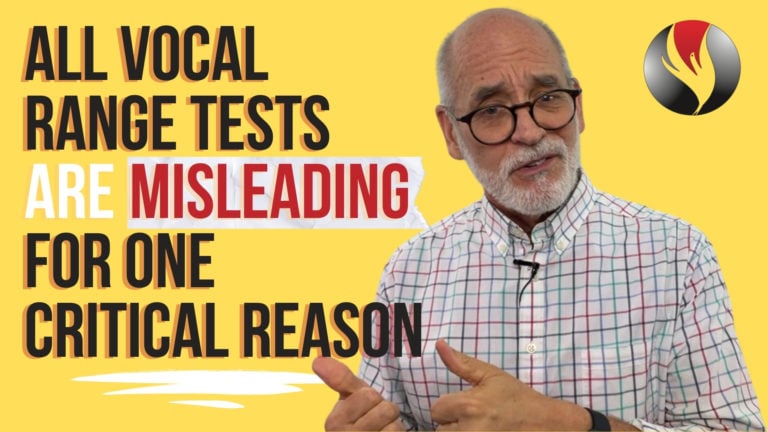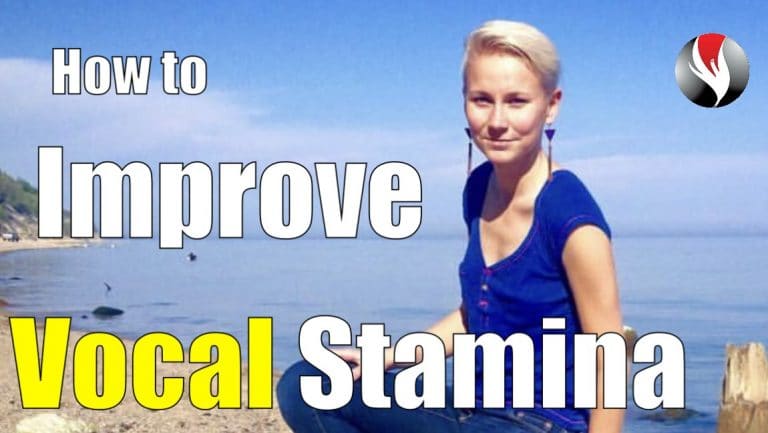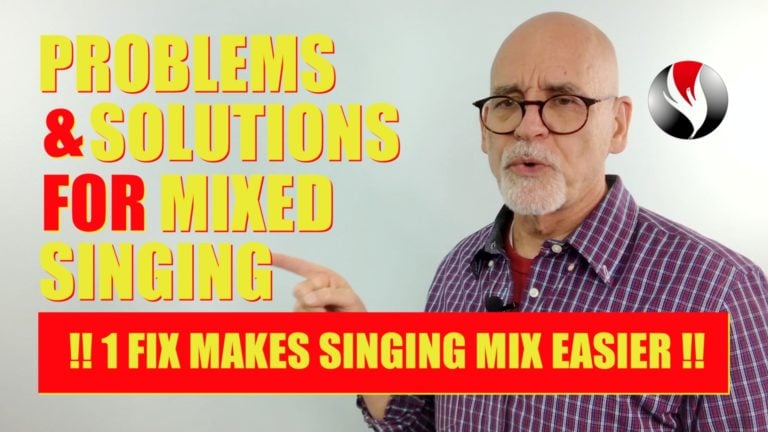What’s a Singer’s Vocal Type? How to Discover Yours! Recently a viewer watched my YouTube video about the four vocal types found in singers voices,
- Pulled-Chest/High Larynx
- Light Chest/No Chest
- Flip-Falsetto
- Mix,
and left this comment. He said:
“These don’t strike me as types; they’re three different categories of vocal dysfunction, and one description on proper functioning.”
Is your vocal type functional or dysfunctional? Inside this video I’ll show you why it’s vital you know and understand whether your vocal type is dysfunctional and what you can do about it!
What’s a Singer’s Vocal Type?
A vocal type is what your voice tends to do when you sing higher from your lowest notes (chest voice) to your highest notes (head voice).
If your voice tends to get heavy, louder and thicker and jams up as you sing higher and maybe even breaks, your vocal type is likely Pulled Chest/High Larynx.
If your voice tends to go light and breathy not only as you sing higher but throughout your range, your vocal type is likely Light Chest/No Chest.
If your voice tends to easily let go into a break, a flip into falsetto, or breathiness, your vocal type is likely Flip-Falsetto.
If your voice tends to blend easily with the chest and the head voice and you transition from chest to head voice while maintaining a consistent tone, your vocal type is likely Mix.
How to Discover Your Vocal Type
To get your vocal type, go to PowerToSing.com and take the vocal test which I call the PowerTest. Take the quiz and discover your vocal type.
Go to the Knowledge Center and watch the videos about your vocal type. This will give you an in depth understanding of your voice and vocal type.
Strictly speaking your vocal type is a physical or mechanical description of what your voice is doing as you sing higher from chest to head voice. For example, if you tend to pull your larynx higher, that’s a physical description not a judgement about whether something in your voice is dysfunctional.
Many popular professional singers have this vocal type. You can watch examples of each vocal type in the Knowledge Center at PowerToSing.com.
It’s vital to know what your vocal type is because it tells you exactly what your voice tends to do as you sing higher. Knowing this, you can choose vocal exercises that will counteract what you don’t want.
You can choose exercises that will diminish and eliminate the problems while training the voice to do what you want it to do.
For example, suppose I take the vocal test at PowerToSing.com and I discover my vocal type is Pulled Chest/High Larynx.
This helps me understand why, for all these years I’ve struggled at the E above middle C. It’s not the end or top of my voice, it’s a bridge that I can learn to sing in and through.
Learning this about my voice, I can take specific steps to improve it. I can choose exercises that will keep my larynx down, and help me sing through the bridge without straining.
I can also beware of teachers who give me exercises that cause me to pull chest harder, or raise the larynx higher, which makes my voice worse, not better.
I can look for a teacher who understands vocal types, can easily demonstrate singing higher through the bridge and that can give me exercises for my vocal type. This is when I began to make rapid progress with my voice.
You can discover your vocal type at PowerToSing.com by taking the vocal test, getting your vocal type, and watching the videos about your vocal type in the Knowledge Center.
Especially helpful are the free exercises for your vocal type that you can download and start practicing. They’ll help you improve your voice rapidly.
If you liked this video, give it a thumbs up, subscribe and share it with a friend. From what I’ve shared today, what’s your best guess about your own vocal type. Let me know in the comments section below.
Also, please join me at Twitter, Facebook and Instagram @powertosing.
I’m Chuck Gilmore with Power To Sing. You can sing higher with beauty, confidence and power. I’ll see you inside the next video.








Responses
Sorry about that. 1. Go here: https://le3u30uxng.wpdns.site/ 2. scroll down and take the vocal test which I call the PowerTest. There is a video there that you can watch that will help you if needed. 3. The quiz is below this headline below the green #3. “When done singing click the Red Stop Button and take the quiz below to Discover Your
VOCAL TYPE”. As an option, you can also email me your vocal test and I will listen it and respond. Hope that helps, Gee.
hi 😉 I’ve looked all over your website and I cannot find the quiz – you not once linked it in this article or under any of your videos 🙂